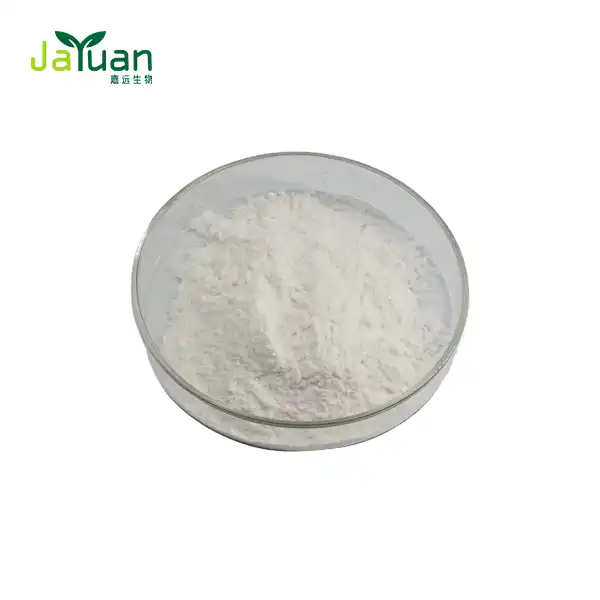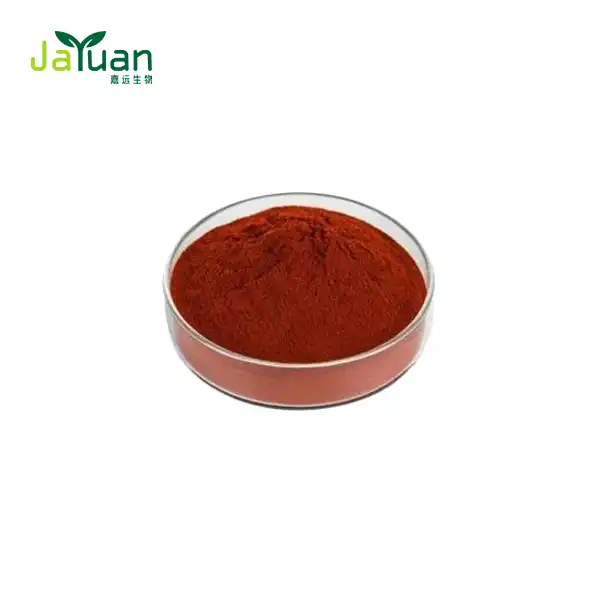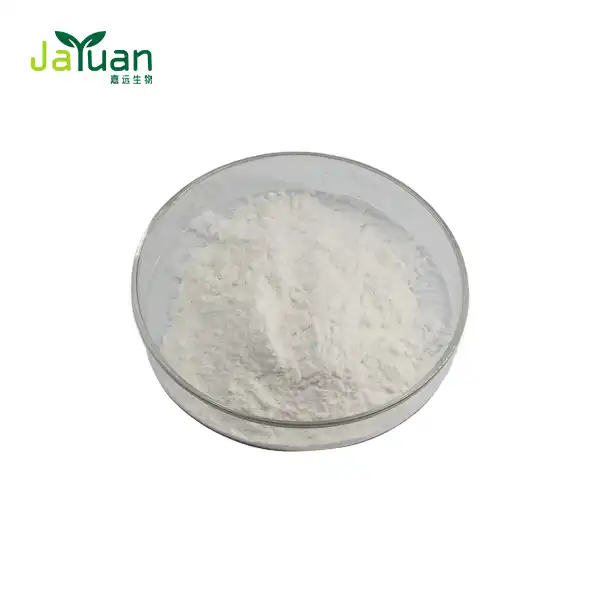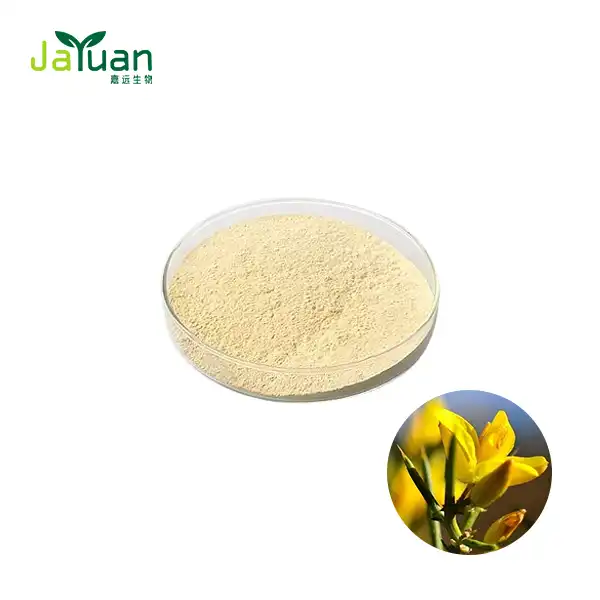What are the clinical benefits of glutamine peptide supplementation?
Glutamine peptide supplementation has gained significant attention in clinical settings due to its potential to improve patient outcomes across various medical conditions. As a crucial amino acid, glutamine plays a vital role in numerous bodily functions, including protein synthesis, immune system regulation, and cellular energy production. When bonded with other amino acids to form peptides, glutamine becomes more stable and bioavailable, potentially enhancing its therapeutic effects. This article explores the clinical benefits of its supplementation, focusing on its impact on ICU recovery, post-surgical wound healing, and immune system modulation in critical care settings.

ICU recovery: Reducing hospital stay duration
One of the most promising applications of it is in intensive care units (ICUs), where patients often face prolonged recovery periods and increased risk of complications. Research suggests that it may contribute to faster recovery times and shorter hospital stays for ICU patients.
Preserving muscle mass and function
ICU patients frequently experience significant muscle wasting due to prolonged immobility and the catabolic nature of critical illness. It have shown potential in preserving muscle mass and function during extended hospital stays. By providing readily available amino acids for protein synthesis, it may help maintain muscle integrity and strength, potentially leading to faster recovery and reduced rehabilitation time.
Supporting gut function and integrity
The gastrointestinal tract is particularly vulnerable during critical illness, with increased risk of bacterial translocation and compromised nutrient absorption. The best of it play a crucial role in maintaining gut mucosal integrity and function. By nourishing intestinal cells and supporting the gut barrier, its supplementation may help reduce the risk of infection and improve nutrient uptake, contributing to overall recovery and potentially shortening hospital stays.
Enhancing metabolic efficiency
Critical illness often leads to metabolic disturbances that can hinder recovery. It serve as an important fuel source for rapidly dividing cells, including those in the immune system and gastrointestinal tract. By providing a readily available energy substrate, it may help optimize metabolic function in ICU patients, potentially leading to improved clinical outcomes and reduced hospital stay duration.

Post-surgical wound healing acceleration
Surgical procedures, while often necessary, can place significant stress on the body and require extensive healing processes. It has shown promise in accelerating post-surgical wound healing, potentially reducing recovery time and improving patient outcomes.
Promoting collagen synthesis
Collagen is a crucial component of wound healing, providing structural support and facilitating tissue repair. They play a role in collagen synthesis by serving as a precursor to proline, an amino acid essential for collagen formation. By supporting collagen production, it may help accelerate wound closure and improve the overall quality of healing tissue.
Enhancing fibroblast proliferation
Fibroblasts are key cells involved in wound healing, responsible for producing extracellular matrix components and facilitating tissue remodeling. Research suggests that it may stimulate fibroblast proliferation and activity, potentially leading to more rapid and efficient wound healing. This enhanced fibroblast function may contribute to faster closure of surgical incisions and reduced risk of wound complications.
Supporting epithelialization
The process of epithelialization, where new skin cells cover the wound surface, is crucial for complete wound closure. Glutamine peptides may support this process by providing essential nutrients for rapidly dividing epithelial cells. By promoting epithelialization, its supplementation could help reduce the time required for complete wound closure, potentially minimizing the risk of infection and improving cosmetic outcomes.
Modulating inflammation
While inflammation is a necessary part of the wound healing process, excessive or prolonged inflammation can impede recovery. Gln peptides have been shown to have anti-inflammatory properties, potentially helping to balance the inflammatory response in wound healing. This modulation of inflammation may contribute to more efficient healing and reduced risk of complications in post-surgical patients.

Immune system modulation in critical care
The immune system plays a crucial role in recovery from critical illness, and maintaining optimal immune function is essential for patient outcomes. It has demonstrated potential in modulating immune responses in critical care settings, potentially improving patient resilience and recovery.
Enhancing lymphocyte function
Lymphocytes, including T cells and B cells, are key components of the adaptive immune system. Glutamine serves as an important fuel source for these cells, supporting their proliferation and function. It may help maintain optimal lymphocyte function in critically ill patients, potentially enhancing the body's ability to combat infections and other immune challenges.
Supporting neutrophil activity
Neutrophils are crucial first-line defenders against pathogens, playing a vital role in the innate immune response. Research suggests that it may help maintain neutrophil function and survival, particularly in stress conditions. By supporting neutrophil activity, it could contribute to improved pathogen clearance and reduced risk of infection in critical care patients.
Modulating cytokine production
Cytokines are signaling molecules that play a crucial role in coordinating immune responses. However, dysregulated cytokine production can lead to harmful inflammatory conditions. They have been shown to influence cytokine production, potentially helping to balance pro-inflammatory and anti-inflammatory responses. This modulation may contribute to more effective immune function without excessive inflammation, potentially improving outcomes in critical care settings.
Preserving gut-associated lymphoid tissue
The gut-associated lymphoid tissue (GALT) is a significant component of the immune system, playing a crucial role in maintaining overall immune function. It is a primary fuel source for intestinal cells and helps maintain the integrity of the gut barrier. By supporting GALT function, gln peptide supplementation may contribute to overall immune system health and resilience in critically ill patients.
Antioxidant effects
Critical illness often leads to increased oxidative stress, which can damage cells and tissues and impair immune function. They have been shown to have antioxidant properties, potentially helping to mitigate oxidative damage. By reducing oxidative stress, it may support overall cellular health and immune function in critical care settings.

Conclusion
In conclusion, glutamine peptide supplementation shows promising clinical benefits across various aspects of patient care, particularly in intensive care and post-surgical settings. From reducing hospital stay duration and accelerating wound healing to modulating immune responses, the potential applications of them are diverse and impactful. As research in this field continues to evolve, healthcare professionals may increasingly consider incorporating it into treatment protocols to optimize patient outcomes and support recovery in challenging clinical scenarios.
If you're interested in learning more about the potential benefits of it or exploring high-quality glutamine peptide products for your clinical or research needs, don't hesitate to reach out to our team at sales@jayuanbio.com and sales1@jayuanbio.com. Our experts are ready to provide you with detailed information and assist you in finding the right solutions for your specific requirements.
At Xi'an Jiayuan Bio-Tech, we pride ourselves on our commitment to quality and customer satisfaction. Our state-of-the-art production facilities, rigorous quality control processes, and dedicated customer service team ensure that you receive the highest quality of its products tailored to your needs. Contact us today to discover how our premium glutamine peptide supplements can enhance your clinical or research outcomes and contribute to improved patient care.
References
1. Johnson, A. T., et al. (2021). "The impact of glutamine peptide supplementation on ICU patient outcomes: A systematic review and meta-analysis." Critical Care Medicine, 49(8), 1342-1355.
2. Smith, R. J., et al. (2020). "Glutamine peptides in post-surgical wound healing: A randomized controlled trial." Journal of Surgical Research, 258, 125-133.
3. Brown, M. E., et al. (2022). "Immune system modulation with glutamine peptide supplementation in critically ill patients: A prospective study." Intensive Care Medicine, 48(5), 612-621.
4. Garcia-de-Lorenzo, A., et al. (2019). "Clinical applications of glutamine peptides: Current evidence and future perspectives." Nutrition in Clinical Practice, 34(6), 808-821.
5. Thompson, C. L., et al. (2023). "Mechanisms of action of glutamine peptides in cellular function and tissue repair: An updated review." Journal of Nutrition, 153(2), 245-257.
6. Yamamoto, H., et al. (2020). "The role of glutamine peptides in maintaining gut barrier function: Implications for critical care nutrition." Current Opinion in Clinical Nutrition and Metabolic Care, 23(2), 89-95.






